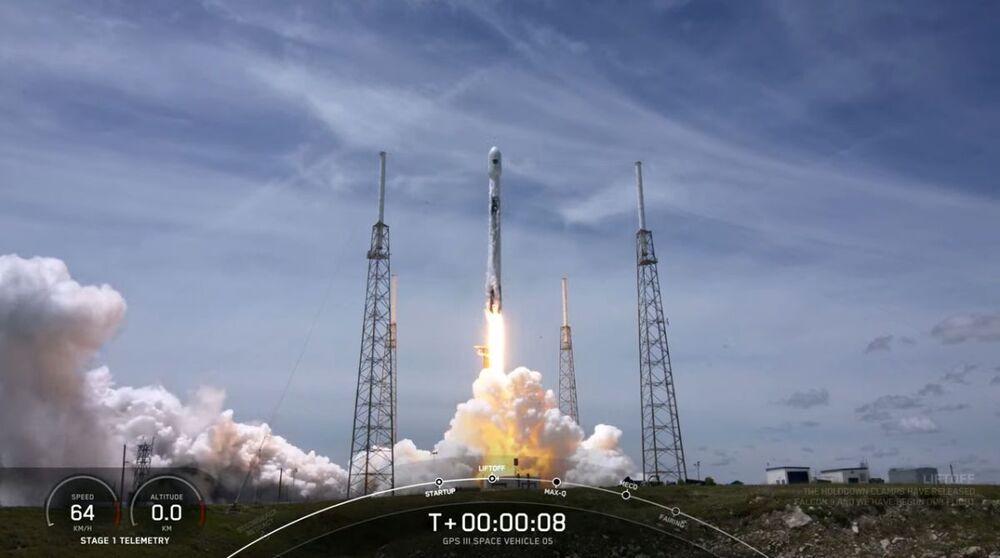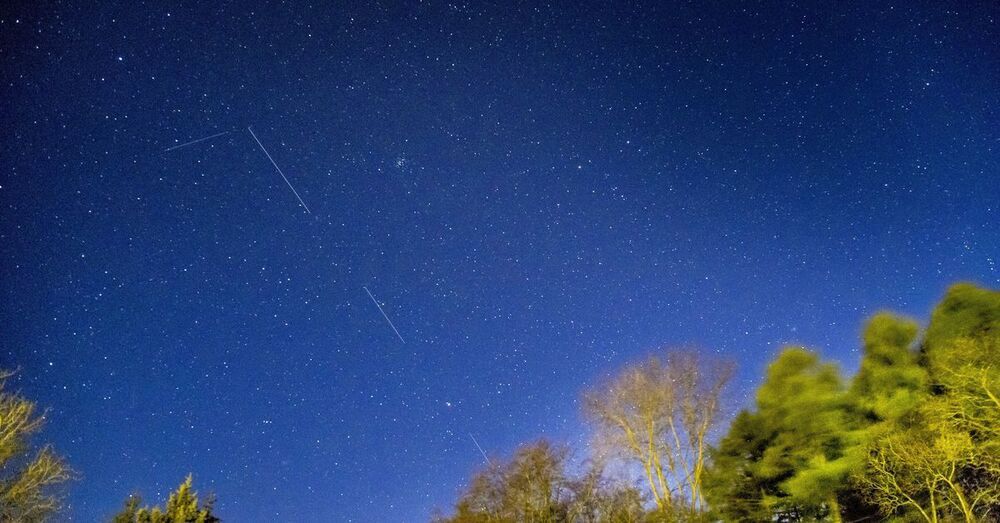The RavnX is the world’s biggest drone and the company behind it hopes this massive UAV will change the way satellites get to space.



Lawrence Livermore National Laboratory engineers have designed a new kind of laser-driven semiconductor switch that can theoretically achieve higher speeds at higher voltages than existing photoconductive devices. If the device could be realized, it could be miniaturized and incorporated into satellites to enable communication systems beyond 5G, potentially transferring more data at a faster rate and over longer distances, according to researchers. Credit: LLNL
Lawrence Livermore National Laboratory (LLNL) engineers have designed a new kind of laser-driven semiconductor switch that can theoretically achieve higher speeds at higher voltages than existing photoconductive devices. The development of such a device could enable next-generation satellite communication systems capable of transferring more data at a faster rate, and over longer distances, according to the research team.
Scientists at LLNL and the University of Illinois Urbana-Champaign (UIUC) reported on the design and simulation of the novel photoconductive device in a paper published in the IEEE Journal of the Electron Devices Society. The device utilizes a high-powered laser to generate an electron charge cloud in the base material gallium nitride while under extreme electric fields.

A few days ago, millions of tons of super-heated gas shot off from the surface of the sun and hurtled 90 million miles toward Earth.
The eruption, called a coronal mass ejection, wasn’t particularly powerful on the space-weather scale, but when it hit the Earth’s magnetic field it triggered the strongest geomagnetic storm seen for years. There wasn’t much disruption this time—few people probably even knew it happened—but it served as a reminder the sun has woken from a yearslong slumber.
While invisible and harmless to anyone on the Earth’s surface, the geomagnetic waves unleashed by solar storms can cripple power grids, jam radio communications, bathe airline crews in dangerous levels of radiation and knock critical satellites off kilter. The sun began a new 11-year cycle last year and as it reaches its peak in 2025 the specter of powerful space weather creating havoc for humans grows, threatening chaos in a world that has become ever more reliant on technology since the last big storms hit 17 years ago. A recent study suggested hardening the grid could lead to $27 billion worth of benefits to the U.S. power industry.

It’s SpaceX’s 19th rocket launch (and landing) of the year.
All of this is great news for SpaceX, as the company has been relying heavily on its fleet of veteran rockets, with many Falcon 9 first stages having racked up five or more flights each.
Out of 19 missions so far this year, only one has featured a brand new Falcon 9; the rest were on flight-proven boosters.
It’s also great news for Space Force and taxpayers as flying on reused rockets translates to a savings of nearly $53 million across the two flights (GPS III-SV05 and GPS III-SV06), Space Force officials said.

In the very last moments of the movie, however, you would also see something unusual: the sprouting of clouds of satellites, and the wrapping of the land and seas with wires made of metal and glass. You would see the sudden appearance of an intricate artificial planetary crust capable of tremendous feats of communication and calculation, enabling planetary self-awareness — indeed, planetary sapience.
The emergence of planetary-scale computation thus appears as both a geological and geophilosophical fact. In addition to evolving countless animal, vegetal and microbial species, Earth has also very recently evolved a smart exoskeleton, a distributed sensory organ and cognitive layer capable of calculating things like: How old is the planet? Is the planet getting warmer? The knowledge of “climate change” is an epistemological accomplishment of planetary-scale computation.
Over the past few centuries, humans have chaotically and in many cases accidentally transformed Earth’s ecosystems. Now, in response, the emergent intelligence represented by planetary-scale computation makes it possible, and indeed necessary, to conceive an intentional, directed and worthwhile planetary-scale terraforming. The vision for this is not to be found in computing infrastructure itself, but in the purposes to which we put it.
The four spacecraft went up aboard a Long March 2D rocket on Thursday (June 10).
China launched four new satellites into orbit on Thursday (June 10), including a commercial satellite for tracking near-Earth asteroids.

Researchers have developed a metalens that is focused using voltage instead of mechanically moving its components, a development that promises to save space and weight in numerous imaging applications.
The advance from researchers at Cornell University’s School of Applied and Engineering Physics and Samsung’s Advanced Institute of Technology is said to be the first of its kind.
The proof of concept could lead to a range of compact varifocal lenses for use in imaging applications including satellites, telescopes and microscopes, which traditionally focus light using curved lenses that adjust using mechanical parts. In some applications, moving traditional glass or plastic lenses to vary the focal distance is not practical due to space, weight or size considerations.

HELSINKI — China rolled out a Long March 2F rocket Wednesday in preparation to send the Shenzhou-12 spacecraft and three astronauts to an orbiting space station module.
The Long March 2F rocket was vertically transferred to its pad at the Jiuquan Satellite Launch Center in the Gobi Desert, the China Manned Space Engineering Office (CMSEO) announced Wednesday.
The rocket will send Shenzhou-12 and three astronauts to the Tianhe core module for China’s space station which launched April 28 Eastern.

Researchers from Cornell University’s School of Applied and Engineering Physics and Samsung’s Advanced Institute of Technology have created a first-of-its-kind metalens—a metamaterial lens—that can be focused using voltage instead of mechanically moving its components.
The proof of concept opens the door to a range of compact varifocal lenses for possible use in many imaging applications such as satellites, telescopes and microscopes, which traditionally focus light using curved lenses that adjust using mechanical parts. In some applications, moving traditional glass or plastic lenses to vary the focal distance is simply not practical due to space, weight or size considerations.
Metalenses are flat arrays of nano-antennas or resonators, less than a micron thick, that act as focusing devices. But until now, once a metalens was fabricated, its focal length was hard to change, according to Melissa Bosch, doctoral student and first author of a paper detailing the research in the American Chemical Society’s journal Nano Letters.

Germany wants to help citizens in rural areas get better access to the world wide web by supporting the purchase of hardware for satellite internet services such as Elon Musk’s Starlink, the transport ministry said on Monday.
The planned subsidy scheme will be open to all providers who offer wireless internet connections in rural areas, for example through satellites or directional radio links, the ministry said.
Coalition talks about the details of the voucher scheme are still ongoing and the aim is to subsidize the purchase of the technical equipment, it added.